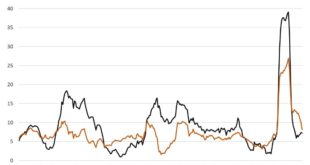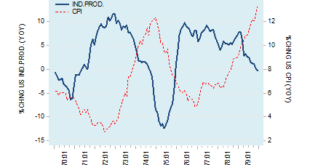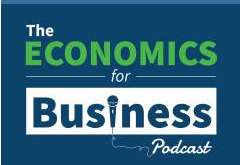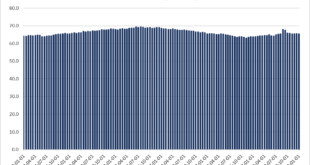Money supply growth fell slightly in April, falling below March’s eight month high. Even with March’s bump in growth, though, money supply growth remains far below the unprecedented highs experienced during much of the past two years. During thirteen months between April 2020 and April 2021, money supply growth in the United States often climbed above 35 percent, well above even the “high” levels experienced from 2009 to 2013. As money supply growth returns to...
Read More »Interest Rates Are Rising, but the Fed Continues to Be Reckless
The crushing issue of high inflation caused by central banks can no longer be downplayed. Public displeasure at the increasing currency devaluation has now forced monetary policy makers to act. The US Federal Reserve (Fed) has raised its key interest rate to 1 percentage point. Many other central banks have also reacted—such as the Bank of England, the Central Bank of Australia, and the Central Bank of Sweden. Even the ponderous European Central Bank (ECB) now plans...
Read More »Market Success Is about Giving People What They Want
Economists are often examining the variables that lead to prosperity, but surprisingly, intelligence is rarely featured in this literature, despite its high replicability in research. Intelligence is a robust predictor of well-being, job performance, and other social outcomes. Due to heightened reasoning abilities, intelligent people are more cooperative and adept at defusing tension. Intelligent people are also appreciative of the long-term reverberations of their...
Read More »The Five Stages of Totalitarianism
Fears of a growing totalitarian tendency in the US have swelled during 2020–22. But how close are we really to a totalitarian state? How have such regimes come about historically and what are the warning signs? This article will answer these questions by examining totalitarian regimes in the eighteenth and twentieth centuries and the pattern by which they came to power. Stage 1: Discontent and Rumblings Every new order rises on the ruins of the old. Those who would...
Read More »What Is Stagflation and What Causes It?
The occurrence of stagflation is associated with a situation of general strengthening in the momentum of prices while at the same time the pace of economic activity is declining. A famous stagflation episode occurred during the 1974û75 period, as year-on-year industrial production fell by nearly 13 percent in March 1975 while the yearly growth rate of the Consumer Price Index (CPI) jumped to around 12 percent. Likewise, a large fall in economic activity and...
Read More »What Is Wrong with the Fed’s Inflationist Policy?
The Lords of Easy Money: How the Federal Reserve Broke the American Economy by Christopher Leonard Simon and Schuster, 2022 viii + 373 pp. Christopher Leonard’s book brings to mind the familiar line from Faust: “Two souls, alas! dwell in my breast.” Leonard offers a penetrating criticism of the Fed’s vast expansion of the money supply, which has won for him praise from the noted hard-money advocate and friend of the Mises Institute James Grant. Leonard is a...
Read More »Rothbard vs. the Religion of Progressivism
Our main text for the Rothbard Graduate Seminar this week is Murray Rothbard’s Power and Market: Government and the Economy, which contains a systematic treatment of one area of economic theory, interventionism. This represents a departure from past seminars in an important respect. Earlier seminars focused on texts by Mises or Rothbard that addressed a much broader scope of their thought. Previous seminar texts such as Man, Economy and State and Human Action over...
Read More »Respect the Fed? No, End the Fed
President Joe Biden has unveiled a three-part plan to fight inflation — or at least make people think he is fighting inflation. One part of the plan involves having government agencies “fix” the supply chain problems that have led to shortages of numerous products. Of course, any attempt by the government to solve the supply chain problems (which were caused by prior government interventions such as shutting down the economy for over a year) will not just fail to...
Read More »Degradation and Nationalization: The Inevitable Ways of Russian Autocratic Economic Policy
As Russian political scientist Gleb Pavlovsky has quite rightly said, one should not consider the five-thousand-plus sanctions imposed against the Russian Federation as of this writing as sanctions in the normal diplomatic and economic sense. They are a conditional “second front,” a blow aimed at dismantling the Russian economy, the Russian social structure, and the institutional framework in response to the corresponding actions of the Russian authorities, with the...
Read More »Are Today’s Homeownership Rates Sustainable?
There is scattered evidence that home prices are finally starting to slow down. But, if the phenomenon is system-wide, we’re still waiting to see the evidence in numbers. Last week, the most recent Case-Shiller national data, for example, showed that home prices in March rose an eye-popping 20 percent, year over year. That’s well in excess of what we saw during the height of the housing bubble leading up to the 2008 financial crisis. That makes nine months in a row...
Read More » Swiss Economicblogs.org
Swiss Economicblogs.org










